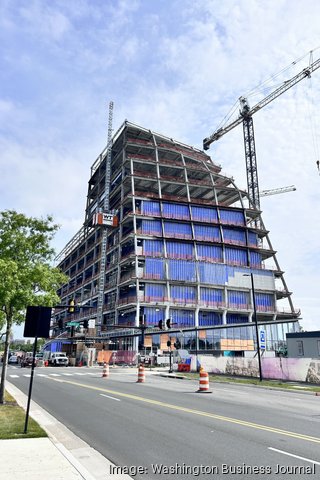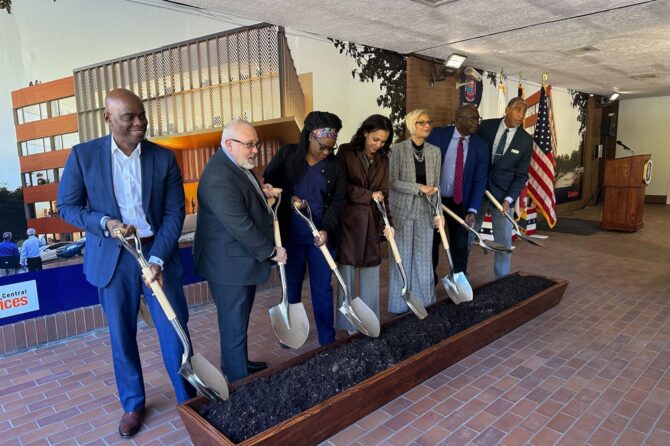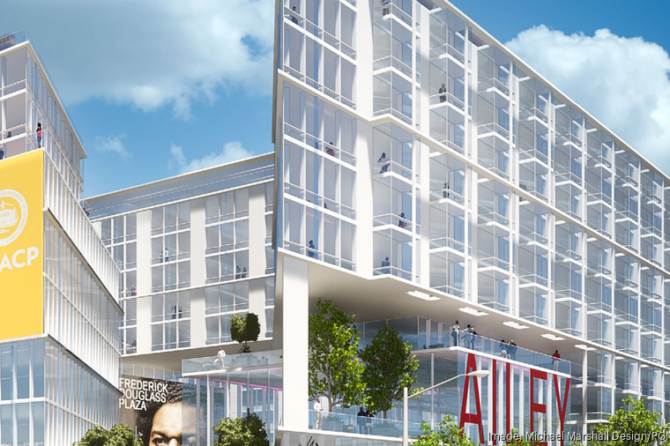WASHINGTON BUSINESS JOURNAL: Academic Building One on the Virginia Tech innovation campus topped out in February 2023.
Virginia Tech’s first academic building on its $1 billion innovation campus in Alexandria will not open until spring 2025.
The university said last week the construction delay is “due to supply chain issues.” The building was initially supposed to open in August 2024. Baltimore’s Whiting Turner is the project’s developer.
Virginia Tech said its graduate students in the D.C. area will continue to attend classes at its Northern Virginia Center in Falls Church until Academic Building One in Alexandria’s Potomac Yard iscomplete. The innovation campus, which is focused on computer science, data, analytics and artificial intelligence, enrolled 250 students as of spring 2023 and it plans to enroll as many as 750 master’s and 200 doctoral students by 2029.
“Our vision remains unchanged. We are building a community perfectly positioned to connect talented students with Northern Virginia’s growing tech ecosystem,” Lance Collins, the executive director of Virginia Tech’s innovation campus said in a statement.
The 11-story, 300,000-square-foot Academic Building One is being constructed on the southwest corner of the 3.5-acre campus, near the new Potomac Yard Metro station. The building topped out in February 2023.
The announcement of the delay comes about a month after Virginia Gov. Glenn Youngkin, Monumental Sports & Entertainment CEO TedLeonsis and Alexandria officials unveiled plans to build a $2 billion entertainment district anchored by a new arena for the Washington Wizards andCapitals in Potomac Yard adjacent to Virginia Tech’s innovation campus.
The innovation campus was unveiled as part of Virginia’s winning bid for Amazon.com Inc.’s second headquarters in 2018. It’s aimed at getting Amazon and other tech companies in the region thecomputer science and engineering employees they need. Arlington-based The Boeing Co. has also made a $50 million donation to the innovation campus to stand up some of its academic programming.
“We’re training people that will be ready to enter the workforce and to be able to contribute to the needs that are in the region. And those needs are Amazon, but they’re really a significant number of companies that are in this region that are connected to thefederal government or the intelligence agencies and so forth, all of which need talent,” Collins told me in September.









